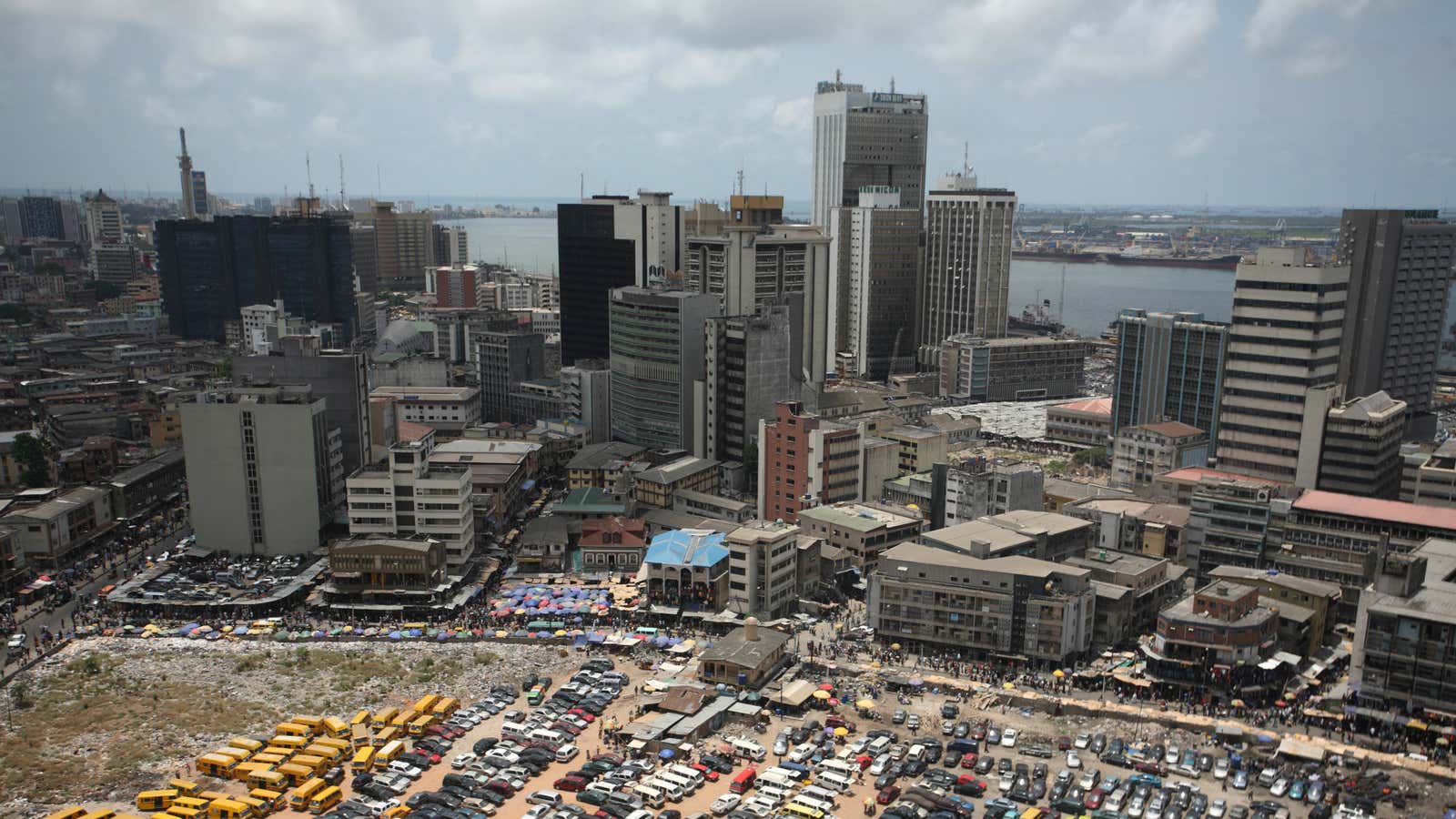The Central Bank of Nigeria (CBN) has suspended nine banks in the country from the inter-bank foreign exchange market due to a failure to remit government income to the government’s coffers, according to reports. The affected banks collectively failed to remit a total of $2.3 billion in deposits belonging to the national oil and gas firms.
Over the past year, under president Muhammadu Buhari’s administration, Nigeria’s apex bank has taken a tougher stance on having banks remit government revenue, imposing strict deadlines and a new remitting system. While government agencies and ministries previously maintained multiple accounts at local banks, president Buhari instituted a Treasury Single Account (TSA) to ensure that all government funds were pooled. This was to instill more accountability in monitoring government revenue and to eliminate opacity in government.
In addition to the ban, the affected banks may also be fined. But the banks have blamed the inability to remit the funds on the scarcity of dollars in Nigeria for most of the past year. That scarcity has remained despite a recent full currency float. In a bid to avoid a sharp currency slide following the drop in oil prices and its revenues, the government chose to adopt a fixed exchange rate but with the problem of the supply of foreign exchange unsolved, increased demand drove up the the value of the currency on the parallel market. Despite calls for devaluation, the central bank, towing the official position of the presidency, maintained the policy. Rather than result in growth, as promised, the policy scared off investors, resulted in major fuel shortages and adversely impacted the economy. The full float has not assuaged the situation either as it is yet to result in tangible growth and inflow of investment.
Given the situation, Mike Omeife, spokesman of Diamond Bank, one of those affected, told Bloomberg “banks expected the CBN would have allowed them to pay in naira instead of dollars”. The ban is expected to be lifted after the government’s funds are remitted but until then, the banks will not be able to operate the inter-bank market. Late on Wednesday CBN said United Bank of Africa had refunded money owed to the treasury account and would be readmitted to the forex trading market the next day (Aug. 25).
